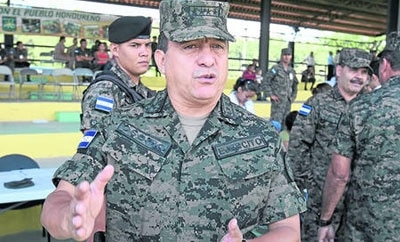Honduran officials said that in the next week the US would restart a radar intelligence sharing program that was suspended in August after Honduran pilots shot down two suspected drug flights.
The system, used to help Honduras monitor drug flights, will be restarted “no later than next week,” General Rene Osorio, head of the Honduran armed forces, told La Prensa in an October 14 interview.
The general said that since the system was shut down, one or two drug flights have landed in Honduras each day. “By the time we arrive, [traffickers] have either burned the aircraft or they’ve left,” he said.
Honduran air force pilots shot down two suspicious aircraft flying over the Caribbean in separate incidents in July. The planes crashed into the ocean, and authorities have not been able to determine whether the aircraft were in fact transporting drugs. Honduras’ unilateral decision to shoot down the planes prompted the US to withdraw its radar intelligence support on August 18, and remove the equipment from the country. The commander of the Honduran Air Force was removed shortly afterwards.
Honduras has been working with a team from the United States for the past two weeks, reviewing existing agreements between the two countries to improve cooperation, according to Osorio.
The United States has not confirmed that the radar intelligence sharing will be restarted. US authorities had said that it would not be restored until they had conducted a full review of the incidents and established firmer guidelines for future cooperation.
InSight Crime Analysis
Honduras is one of the main cocaine transit points in Central America, with the US State Department estimating that some 80 percent of drug flights going from South America to the United States pass through the country.
The radar technology had been lent as part of Operation Anvil, a US-led anti-drugs program in Honduras. The operation has now been terminated, due to incidents like the shooting down of the aircraft.
Honduras and the United States are developing a new anti-drug plan (dubbed “Anvil II”) focused more on judicial reform and institution building, according to the New York Times. InSight Crime has learned that the US are still keen to continue counter-narcotics operations in Honduras, though they plan to move ahead with greater caution in light of Operation Anvil’s failures.

